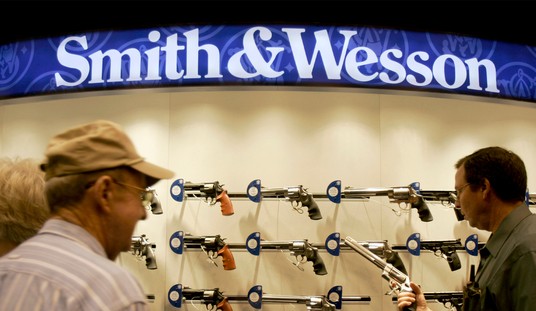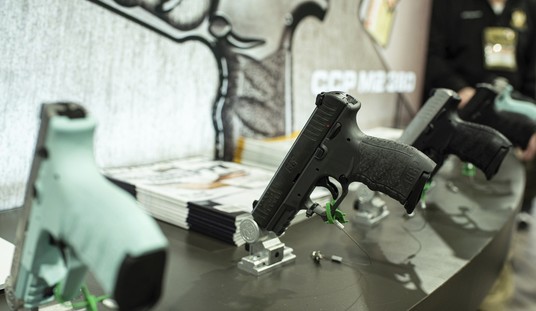I'm always interested to hear new ideas about increasing public safety and combatting juvenile crime, so I was intrigued when I ran across a column by Nebraska pundit Grace Bellinghausen offering up a "new approach" to addressing juvenile "gun crime".
Unfortunately, you and I have already heard most of what the columnist for the Sarpy County Times has to offer, and her ideas are non-starters for Second Amendment supporters.
I came across a TikTok (yes, I know—TikTok, don’t roast me) by user @Ryanndatsme that gained over 12 million views and suggests an intriguing idea to deter gun violence: what if firearms required an insurance policy, just like cars, homes, or even your phone?
Here’s the concept: if you’re found with a firearm but no insurance, authorities could confiscate it. Insurance companies would assess your risk and set premiums accordingly. Want a lower rate? Take gun safety classes. Similar to how vehicle insurance is categorized (Class A, B, or C), firearms would be treated the same, with premiums adjusted based on the potential risk each type of firearm poses.
Remember, this is supposed to be about combatting juvenile crime. So how would mandating adults take out an insurance policy before exercising a civil right have any impact on crimes committed by people who aren't old enough to legally purchase a firearm? Bellinghausen doesn't say.
Whether Bellinghausen realizes it or not, her proposal would almost certainly price those of us on the lower rungs of the economic ladder out of our Second Amendment rights, along with racial minorities. As ProPublica pointed out in a 2017 article about the disproportionately higher rates for car insurance in minority neighborhoods:
For decades, auto insurers have been observed to charge higher average premiums to drivers living in predominantly minority urban neighborhoods than to drivers with similar safety records living in majority white neighborhoods. Insurers have long defended their pricing by saying that the risk of accidents is greater in those neighborhoods, even for motorists who have never had one.
But a first-of-its-kind analysis by ProPublica and Consumer Reports, which examined auto insurance premiums and payouts in California, Illinois, Texas and Missouri, has found that many of the disparities in auto insurance prices between minority and white neighborhoods are wider than differences in risk can explain. In some cases, insurers such as Allstate, Geico and Liberty Mutual were charging premiums that were on average 30 percent higher in zip codes where most residents are minorities than in whiter neighborhoods with similar accident costs.
Our findings document what consumer advocates have long suspected: Despite laws in almost every state banning discriminatory rate-setting, some minority neighborhoods pay higher auto insurance premiums than do white areas with similar payouts on claims. This disparity may amount to a subtler form of redlining, a term that traditionally refers to denial of services or products to minority areas. And, since minorities tend to lag behind whites in income, they may be hard-pressed to afford the higher payments.
That's the system that Bellinghausen wants to put in place for gun owners? No thanks. And her next big idea is just as bad.
Another intriguing concept involves geolocation devices on firearms. If a shot is fired near a school, ping—police are alerted. The same goes for large events; a ping would notify law enforcement. Police could even designate “red zones” for crowded events, ensuring quick responses and precise locations. Just knowing that this is alert is given when firing the weapon may be enough to decrease these events.
So... every gun (and gun owner) would be tracked by law enforcement at all times? That's a level of totalitarianism not seen outside of Communist countries, and even if technology allowed for retrofitting each of the roughly 400 million guns in the U.S. with a GPS tracking device, it would be a clear violation of our Fourth Amendment rights.
Bellinghausen says that tackling the issue of juveniles using guns in the commission of crimes "demands thoughtful action and a willingness to explore unconventional solutions today for a safer tomorrow." I'd say there's a much more effective (and constitutionally sound) approach that Bellinghausen has completely ignored: punishing violent juvenile offenders to the fullest extent of the law, while offering teens on the wrong path an opportunity to turn their lives around before they end up in a prison cell.
More than 20 years ago Operation Ceasefire reduced juvenile homicides in Boston by more than 50% without putting a single new gun control law on the books by simply focusing on the small number of repeat violent offenders. It would be a heck of a lot easier to put a similar program in place in Omaha than mandating every gun owner purchase insurance or requiring them to have GPS monitoring on every one of their firearms. It may not be a new strategy, but the tried-and-true strategy is a much better solution than the "unconventional" and unconstitutional approach Bellinghausen is advocating.








Join the conversation as a VIP Member